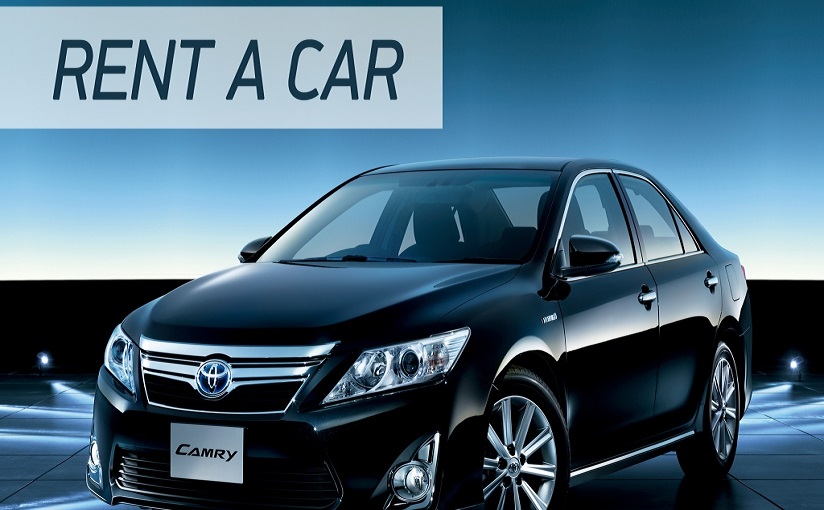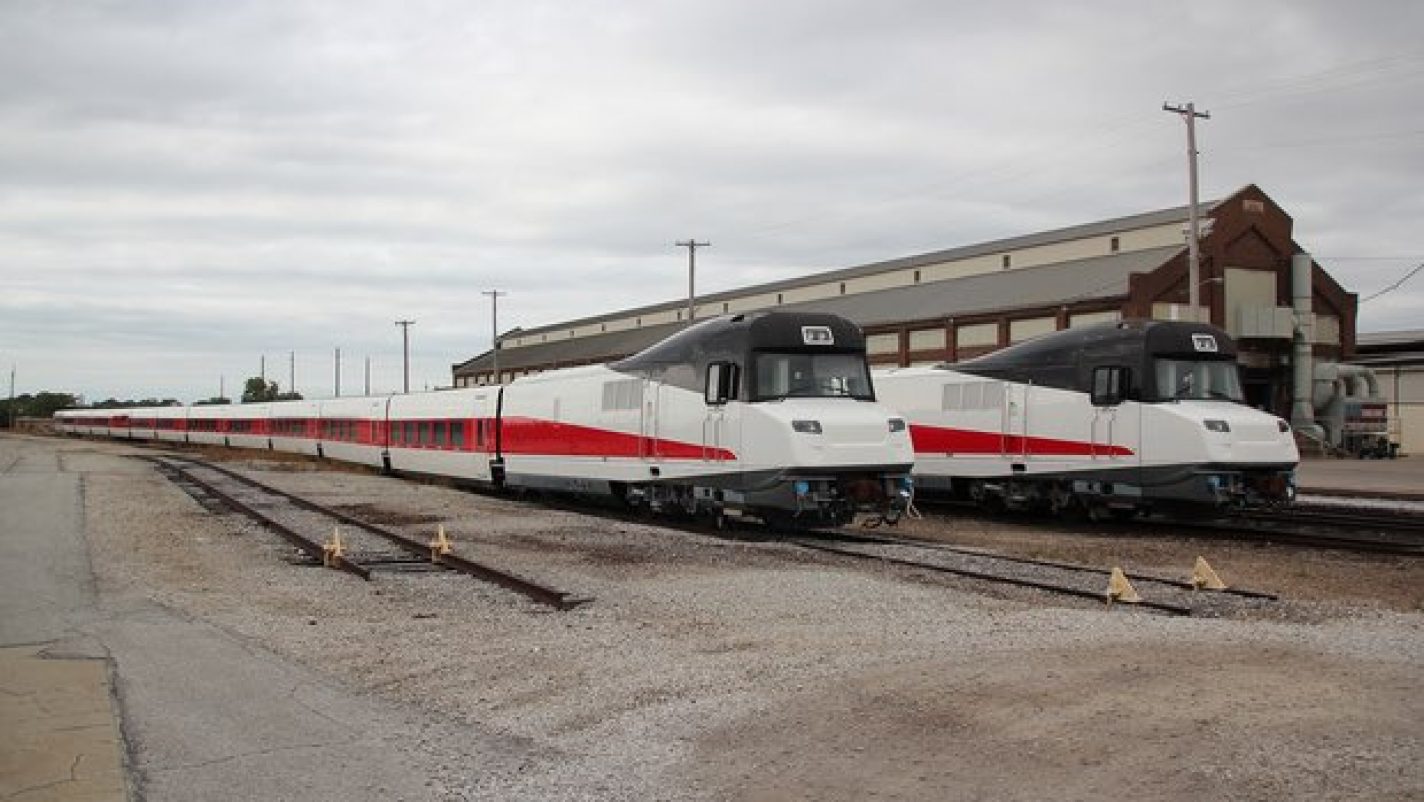Auto
Car Rental Market to Make $176.2b by 2025


By Dipo Olowookere
Future Market Insights (FMI) has announced the release of its report titled ‘Car Rental Market: Global Industry Analysis and Opportunity Assessment 2015-2025.’
According to the report, the global car rental market, valued at $87.8 billion in 2014, is anticipated to reach $176.2 billion by 2025, expanding at a CAGR of 6.6 percent between 2015 and 2025.
The global car rental market is driven by rising global tourism industry, surge in public awareness about car rental services, easy booking via online services, introduction of new business concepts, increasing number of Internet users and rise in international tourist arrivals. Apart from this, growing GDP rates and increasing income levels in the developing regions are also positively influencing growth of the car rental market globally.
Increasing infrastructural developments, growing air travel, rise in demand for recreational activities and increasing urban population have widened the scope for car rental service providers. Conversely, stringent emission standards, low cost public transportation, and volatility in crude oil prices are some of the minor restraints in the global car rental market. Additionally, increasing mobile and Internet usage is also expected to drive growth of the global car rental market in the coming years. Growing investments by the industry players and increasing online presence of the car rental service providers is expected to further drive growth of global car rental market.
Rising technological developments are expected to offer favourable growth opportunities in the near future. Rapid urbanisation is leading to a rise in the mobility on-demand services, which include car sharing, short-term car rental services, etc., which are providing favourable prospects for growth of the car rental market.
North America dominated the global car rental market in 2014, in terms of revenue, accounting for 48.4 percent share of the overall market. However, APEJ (Asia Pacific Excluding Japan) is foreseen to expand at a relatively high CAGR of 10.2 percent during the forecast period. North America is expected to remain the most dominant global car rental market throughout the forecast period.
The major players in the market are focusing on expanding their global footprints through various mergers and acquisitions.
Rising consolidation in the car rental industry has facilitated market leaders, such as Enterprise Holdings Inc., to expand their respective businesses in various geographies, thereby increasing their market share. The U.S. is witnessing major investments by market players, along with increasing popularity of car sharing services.
By end use, the on-airport segment dominated the global car rental market in 2014 in terms of revenue, and is foreseen to expand at a CAGR of 8.2 percent during the forecast period. The on-airport car rental segment is expected to remain the most dominant segment in the global car rental market throughout the forecast period
By customer type, the leisure segment is foreseen to expand at a high CAGR of 8.6 percent during the forecast period. The segment is expected to dominate the global car rental market throughout the forecast period.
On the basis of booking type, the offline access dominated the global car rental market in 2014 in terms of revenue, accounting for 48.4 pecent share of the overall market in 2014. The market is expected to lose its market share to the mobile application segment, which is projected to expand at a CAGR 9.9 percent during the forecast period.
On the basis of sector, the unorganised segment dominated the global car rental market in 2014 in terms of revenue, accounting for 56.9 percent share of the overall market. However, the organised sector segment is foreseen to expand at a relatively high CAGR of 7.3 percent.
Competitive Landscape
Key market players covered in the reportinclude Enterprise Holdings Inc., The Hertz Corporation, Avis Budget Group, Inc., Europcar Group S.A., Carzonrent India Pvt Ltd., Sixt SE, Al Futtaim Group, Localiza- Rent a Car SA, Eco Rent a Car and GlobalCARS. The car rental market is consolidated in some regions such as the U.S. and Europe, with the top two players bagging over 50 percent shares of the total market. Most players in the market are engaged in various activities, such as mergers and acquisitions, increasing investments in technological developments, geographical expansion and brand building via strong marketing strategies, in order to sustain their position in the competitive market.
Auto
FG Claims Investments in Presidential CNG Initiative Now $450m

By Adedapo Adesanya
Nigeria’s Presidential Compressed Natural Gas Initiative (PCNGi) claims that investments in championing the CNG value chain have hit $450 million.
This was disclosed by Mr Michael Oluwagbemi, Project Director and Chief Executive Officer (CEO), PCNGi, during the 9th Edition of the Nigeria Energy Forum (NEF2024) Day 2, Virtual Event themed Energising Sustainable Industrialisation.
According to the PCNGi CEO, the amount goes into things like mother stations, daughter stations and refuelling stations as well as conversion centres which are starting to spring up across the nation.
Mr Oluwagbemi, represented by Mr Tosin Coker, the Head of Commercial, PCNGi, said the initiative had successfully converted more than 10,000 vehicles from petrol to CNG.
“By 2027, the initiative will have converted more than one million vehicles using petrol to CNG,” he said.
On incidents of explosion of vehicles using CNG, the CEO assured Nigerians that it had taken precautionary measures with different agencies of government to ensure safety.
Mrs Ibironke Olubamise, National Coordinator of the GEF Small Grants Programme (SGP), managed by UNDP, said the SGP was investing in youth energy innovation for economic growth and environmental sustainability.
Mr Daniel Adeuyi, NEF Group Chairman, said, “The event featured three super sessions on Energising Industrial Revolution, Community Climate Action by GEF-SGP UNDP and Clean Energy Innovations.
“The sessions are to share lessons learnt from real-life projects and build capacity of young entrepreneurs and cross-industry professionals.”
Mr Joseph Osanipin, the Director General of the National Automotive Design and Development Council (NADDC), said that the council had trained more than 4,000 auto technicians on how to convert petrol vehicles to CNG.
He said the council had started campaigns to sensitise Nigerians on the advantages of using CNG to power their vehicles.
“CNG can guarantee a cleaner environment, it is cheaper and affordable,” he said.
Mr Oluwatobi Ajayi, the Chairman and Managing Director of Nord Automobile Ltd., said the company was established to tackle the growing demand for vehicles in Africa and reduce import dependency.
He said that because of the Federal Government’s CNG initiative, the company had incorporated it into their vehicle production to meet up with the government policy.
Mr Armstrong Tankan, the Managing Director and Chief Executive Officer, Ministry of Finance Incorporated (MOFI), said that MOFI was set up in 1959 as the statutory vehicle to hold all the assets owned by the federal government.
“Today, we’ve been able to identify the assets the federal government owns and we are trying to track them.
‘We actually do have assets, not just locally but globally as well and we must establish visibility over what the federal government owns before we can start talking about managing them.
“So, we want to try to minimise the waste, minimise the overlaps and help to improve output,” he said.
Auto
Dangote Becomes Largest Operator of CNG Trucks With $280m Investment

By Aduragbemi Omiyale
Over $280 million has been invested by Dangote Cement Plc in compressed natural gas (CNG) technology and infrastructure to enhance energy efficiency and drive economic growth in Nigeria.
The cement maker turned to CNG in demonstration of its support for President Bola Tinubu’s drive for cheaper and cleaner fuelling alternatives for all Nigerians.
At a recent event, the President emphasised the urgent need for Nigeria to utilise its vast natural gas resources in the transportation sector.
He stated that CNG transportation is an economic necessity for Nigeria, signalling a significant shift in the country’s approach to public transportation and energy use.
This has spurred Dangote Cement to adopt CNG, reflecting its dedication to mitigating climate change and supporting a transition to a low-carbon economy, making it the largest operator of CNG trucks in the country.
The chief executive of Dangote Group, Mr Aliko Dangote, said his company’s investments in CNG are also in line with Nigeria’s Nationally Determined Contribution (NDC) under the Paris Agreement, which aims for net-zero emissions by 2060.
“In this pursuit of transition to clean energy, we are optimistic of a remarkable accomplishment by President Tinubu, as he has taken the lead in the nation’s drive towards energy efficiency. This presupposes private sector intervention to support this noble idea initiated by the President,” he stated.
The businessman noted that the firm’s early adoption of CNG has made it the largest operator of CNG trucks in Nigeria, emphasising that the initiative is a boost to Mr Tinubu’s quest towards enhancing the nation’s energy independence and contributing to a more secure energy future.
“We are now using CNG vehicles, especially with the new policy of the federal government, launched under the Renewed Hope Agenda by President Tinubu. We are committed to a cleaner and greener future,” Mr Dangote said.
On his part, the chief executive of Dangote Cement, Mr Arvind Pathak, said the cement miller aims to acquire 100 per cent CNG trucks as part of a long-term plan to transition its entire fleet to CNG.
He disclosed that the CNG infrastructure investments have positively influenced Nigeria’s transition to cleaner fuels, adding that the CNG station at Obajana, capable of refuelling over 3,000 trucks, exemplifies this commitment, with a second station currently under development in Ibese to support fleet operations further.
“By mid-2026, Dangote Cement aims to operate a fleet predominantly powered by CNG. To facilitate this transformation, we are investing in expanding our CNG fuelling infrastructure, ensuring that our growing fleet has reliable access to CNG as our fuel,” Mr Pathak said.
He added that plans are afoot to aggressively pursue this timeline of deployment, beginning from the first quarter of 2025, saying, “We are keeping our eyes on the ball to ensure that we do not miss our target dates of full compliance.”
Auto
Lagos Red Rail Line to Begin Full Passenger Operations October 15

By Adedapo Adesanya
The Lagos State Government has announced that the Red Rail line will begin full passenger operations on Tuesday, October 15, 2024.
This was disclosed by the Managing Director of the Lagos Metropolitan Area Transport Authority (LAMATA), Mrs Abimbola Akinajo.
“Full passenger operations on the Lagos Rail Mass Transit (LRMT) Red Line will commence on Tuesday, October 15, 2024, Managing Director of Lagos Metropolitan Area Transport Authority (LAMATA), Engr. Abimbola Akinajo affirmed today,” a public notice from the agency read.
According to LAMATA, Governor Babajide Sanwo-Olu, members of his executive council, and other dignitaries will launch the passenger operations and ride with commuters on the first fee-paying passenger trip.
Mrs Akinajo said that train services would commence daily from Agbado at 6.00 am.
“Before now, trips have emanated from Oyingbo at 9.00 am. The first train therefore got to Agbado at 10.07 am. The adjusted timetable foreshadows upcoming commercial passenger operations commencing on Tuesday, 15th October 2024,” the agency said.
He explained that the new timetable was the outcome of data gathered through the series of tests, including that for the non-fee-paying passengers. According to him, the new timetable gives priority to the origin trips from Agbado where riders live and work at Ikeja, Oshodi, and Lagos Island.
“For passengers whose journeys terminate on Lagos Island, buses will be available at Oyingo bus terminal for them to complete their journeys,” LAMATA said.
“It would be recalled that infrastructure for the Red Line was commissioned by President Bola Ahmed Tinubu on 29th February 2024. The Red Line’s first phase spanning 27 kilometres has eight stations at Oyingbo, Yaba, Mushin, Oshodi, Ikeja, Agege, lju, and Agbado.”
-

 Feature/OPED5 years ago
Feature/OPED5 years agoDavos was Different this year
-
Travel/Tourism8 years ago
Lagos Seals Western Lodge Hotel In Ikorodu
-

 Showbiz2 years ago
Showbiz2 years agoEstranged Lover Releases Videos of Empress Njamah Bathing
-

 Banking6 years ago
Banking6 years agoSort Codes of GTBank Branches in Nigeria
-

 Economy2 years ago
Economy2 years agoSubsidy Removal: CNG at N130 Per Litre Cheaper Than Petrol—IPMAN
-

 Banking2 years ago
Banking2 years agoFirst Bank Announces Planned Downtime
-

 Sports2 years ago
Sports2 years agoHighest Paid Nigerian Footballer – How Much Do Nigerian Footballers Earn
-

 Technology4 years ago
Technology4 years agoHow To Link Your MTN, Airtel, Glo, 9mobile Lines to NIN












